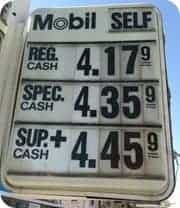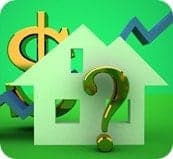 People often argue about if agents are worth what they are paid, who is a good agent, what makes a good agent, and so forth. I’m not (for now) going to dive into any of these questions, but instead step back and try and determine how do we even go about setting up the discussion in order to answer those questions? The more I think about it, the more I come to believe that real estate agents represent a very unusual profession that sells a very unusual good which is why it makes comparisons and evaluation so challenging. If we are going to be able to answer any of the above questions, we need to first dive into the question of “what exactly is a real estate agent”.
People often argue about if agents are worth what they are paid, who is a good agent, what makes a good agent, and so forth. I’m not (for now) going to dive into any of these questions, but instead step back and try and determine how do we even go about setting up the discussion in order to answer those questions? The more I think about it, the more I come to believe that real estate agents represent a very unusual profession that sells a very unusual good which is why it makes comparisons and evaluation so challenging. If we are going to be able to answer any of the above questions, we need to first dive into the question of “what exactly is a real estate agent”.
 In economics we learn about many types of goods and how, as a society, we should deal with and evaluate them. For instance, inelastic goods (those which demand is independent of prices) are often watched closely for abuse. Why do you think there is so much outrage over rising gas prices? Prices are going up and there is limited ability to reduce demand or substitute in another good. Alternatively we have goods which appear to be natural monopolies (utilities being the most obvious example) which is why in many areas the power and water companies are either heavily regulated or run by state commissions.
In economics we learn about many types of goods and how, as a society, we should deal with and evaluate them. For instance, inelastic goods (those which demand is independent of prices) are often watched closely for abuse. Why do you think there is so much outrage over rising gas prices? Prices are going up and there is limited ability to reduce demand or substitute in another good. Alternatively we have goods which appear to be natural monopolies (utilities being the most obvious example) which is why in many areas the power and water companies are either heavily regulated or run by state commissions.
So how does real estate fit into any of this? Well, as it turns out, I cannot find a type of good to accurately describe the role of a real estate agent and the subsequent real-estate transaction. Real estate agents act as advisors (though not legally fiduciaries) but do not come to the table with objective knowledge. The closest I could find is something called an experiential good. This is a good where the actual experience of using the good is in itself the value. Think of a visit to the movie theater or going on vacation; you experience the value. However, with an experiential good you can evaluate the value of it as you experience it. You usually leave a movie theater knowing if you got your $12 worth.
 When it comes to a real estate agent, your ability to evaluate their performance is limited. After you sell your house, you never know if you could have gotten another $10,000. Would the home have sold as well if you hadn’t spent $5,000 fixing it up before sale? Unfortunately we have no way to rerun the same home sale 50 times and answer these questions. There are some comparisons that can be made with law, medicine, and business consulting, but in general those industries deal with more common transactions and are heavily licensed, regulated, and monitored (back to the earlier point).
When it comes to a real estate agent, your ability to evaluate their performance is limited. After you sell your house, you never know if you could have gotten another $10,000. Would the home have sold as well if you hadn’t spent $5,000 fixing it up before sale? Unfortunately we have no way to rerun the same home sale 50 times and answer these questions. There are some comparisons that can be made with law, medicine, and business consulting, but in general those industries deal with more common transactions and are heavily licensed, regulated, and monitored (back to the earlier point).
As someone who has been on both sides of the consulting table, I can say that one of the real challenges with such ‘professional’ goods is developing a valid metric of performance. Moreover, many existing metrics are prone to gaming. For instance there is evidence that, after the introduction of success rate reporting, surgeons becoming overly risk-averse in regards to the patience they will work on. Some typical ones used with real estate agents are of very questionable validity. Is time on market really a good measure? Any economist will tell you that a good that sells quickly is selling too cheaply. Research on the time-on-market and sale price of real estate agent’s own homes supports this (they are on the market longer and sell at higher prices). Is the raw number of homes sold a good measure? The number which sell within 3% of posted price? Buying agents getting more than 5% under list price?
I think what is needed is to begin a conversation around how to address this. We are in a situation where information is becoming increasingly available and can be leveraged to consider some complex questions. What evaluation criteria, both objective and subjective, can we use? How can we avoid building statistics that are so easily gamed? This is the perfect time to take a fresh look at an old industry in a very new way.
